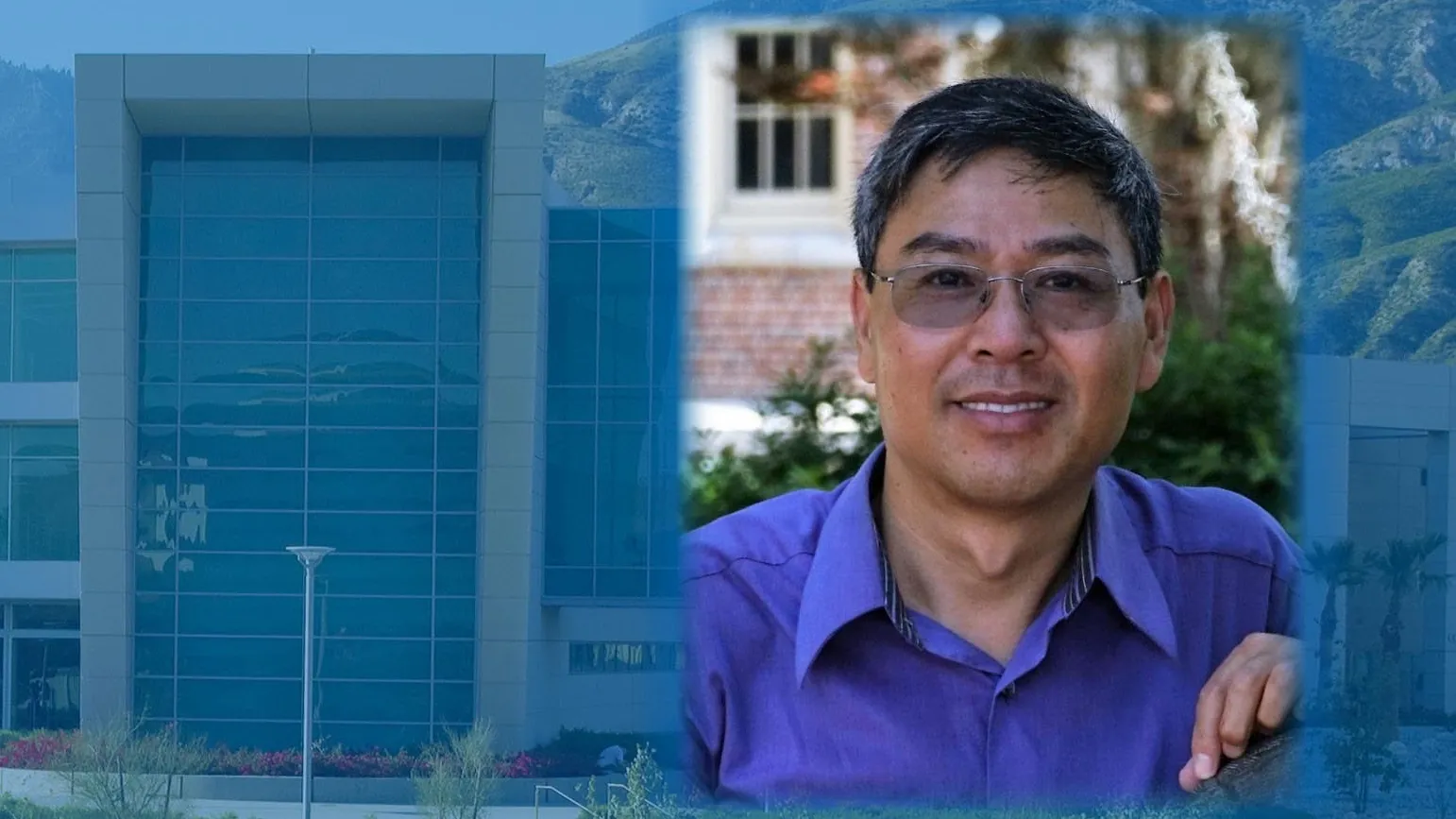Alan Llavore | Office of Strategic Communication | (909) 537-5007 | allavore@csusb.edu

Viktor Wang, Cal State San Bernardino professor of educational leadership and technology, has published his latest book, “Historical and Modern Practice of Career and Technical Education,” which discusses the formidable challenge of how to ensure that nations have the workforce capabilities to contend with the present and shape a positive future economy for societies and their citizens.
Covering key topics such as AI and technology in CTE (Career and Technical Education), leadership in CTE and community colleges and organizational training, learning and development, and career and technical education, this definitive work is ideal for policymakers, managers, industry professionals, researchers, academicians, scholars, practitioners, instructors and students.
The book, which Wang co-authored with Geraldine Torrisi-Steele, deputy head in the School of Information and Communication, Griffith University in Australia, serves not only as a required textbook but also as a major reference source.
“A lot is hinging on CTE,” Wang said. “CTE, sometimes called by other names – including vocational education, technical education, or vocational education and training – has always been important but never as important as it is now,” said Wang, who teaches in the CSUSB James R. Watson and Judy Rodriguez Watson College of Education's Department of Educational Leadership & Technology. “The 21st century is characterized by unprecedented and rapid technological change, so much so that it is often described as ‘tumultuous.’ Enabled by technologies, each of the many social, political, and economic systems around the world are unique to their nations and at the same time are also a part of an intricate, interconnected global system. Change in a ‘node’ of the system inevitably reverberates throughout. It’s no wonder that the 21st century is often described in literature as ‘tumultuous.’ In consonance with our times, the nature of work is evolving.”
“It isn't easy to understand the philosophies, policies, and practices of career and technical education without an understanding of the historical events that have contributed to their development. In the past, many instructional and administrative practices in CTE were developed out of convenience or to accommodate the conventions of the larger academic instructional program,” said Paul A. Bott, professor and chair emeritus, Cal State Long Beach. “This book provides the most comprehensive and empirical examination of historical and current practices of CTE in the United States and some other social contexts around the world. The global perspectives, including descriptions of foreign teaching methods, make the book a valuable resource for the theory and practice of CTE in a challenging era.”
Other testimonials include:
- Ted Fleming, emeritus professor at Maynooth University, adjunct associate professor, Teachers College, Columbia University: “This book is worth waiting for as it expertly covers new and useful ground. Brought together by two experts in Career and Technical Education, it opens fascinating reading areas such as AI and training in China and Russia—so much learning. Usual subjects such as organizational training and curriculum design are not ignored, but the breadth of the areas covered adds interest—real interesting topics.”
- Maria Witte, associate dean and professor, Auburn University: “From the integration of cutting-edge technologies to the evolving nature of work, the ‘Historical and Modern Practice of Career and Technical Education’ is an indispensable source for supporting those who wish to guide CTE so that it meets the demands of a rapidly changing global economy. To ensure that CTE does prepare individuals for the future, the program design and delivery approaches in CTE are critical. This is a book for CTE practitioners, future practitioners, and CTE leaders. It provides a rich discussion over an interesting and highly relevant cross-section of topics,”
- William J. Rothwell, Distinguished Professor of Education, Penn State University: “The book is foundational to understanding the practices and underpinning philosophies and theories in CTE. The book brings to the fore the importance of CTE and effectively draws attention to what's important in the practice and theory of CTE. The chapters are well balanced, providing knowledge and provoking reflection and discussion. The book is foundational to understanding essential elements of CTE as it is now, and helping to envision how those elements might look in the future.”
“I thank CSUSB Provost Dr. Rafik Mohamed for giving me three release time awards to complete this milestone book and two other refereed handbooks of research for CSUSB, ranked 170th as a newly designated research university,” Wang said. “This book serves as a definitive textbook and reference book for upper-division undergraduate students and graduate and doctoral students in the field; this book has filled a much-needed void in the literature, as no other colleagues have published a similar book.”
Wang has been granted early tenure and promotion from associate professor to full professor at CSUSB as a former tenured professor at two other major public universities. Thus far, Wang has successfully taught at five public universities in China and the United States, and he considers CSUSB one of the best public institutions where employees, staff, and students work and study in this non-discriminatory environment under the transformational, charismatic leadership team of President Morales.
Wang brought more than 240 refereed publications to CSUSB. Some of the world’s leading university libraries have cataloged Wang’s multiple books. For example, Princeton University Library has cataloged 30 of Wang’s 58 titles. University of British Columbia Library has cataloged 36 of Wang’s 58 titles.
“I am extremely grateful to my co-author, Dr. Geraldine Torrisi-Steele, who has contributed numerous book chapters to my books and articles to the journals I edit. She also co-edited the International Journal of Adult Education and Technology and the International Journal of Adult Vocational Education and Technology with me,” Wang said.